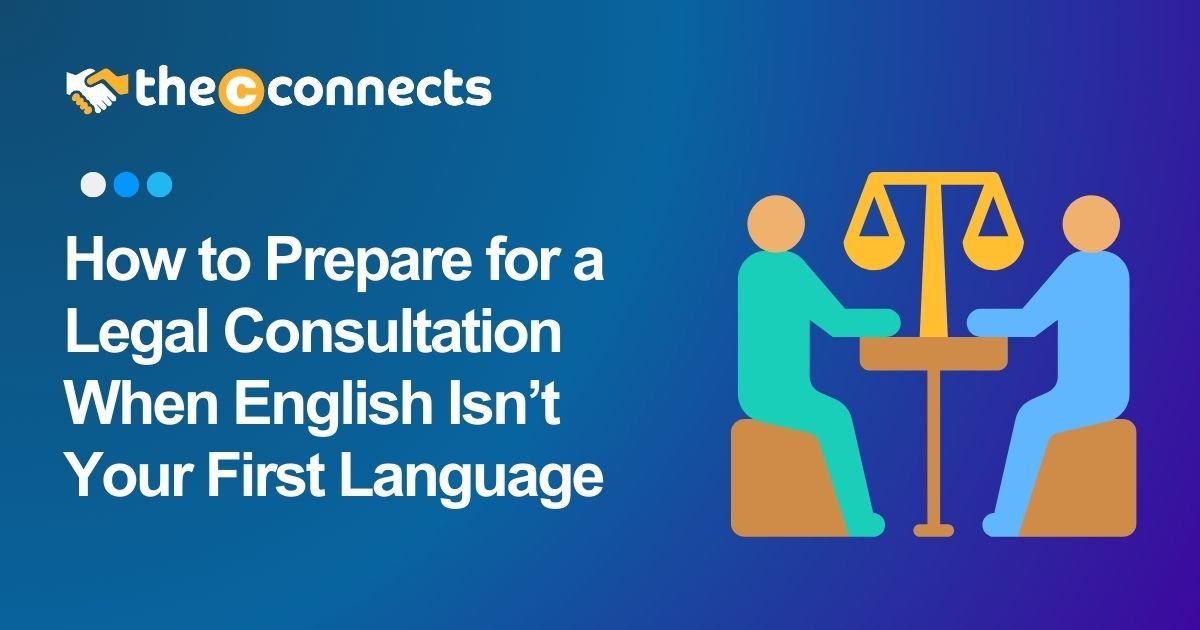Las Vegas is home to a large and diverse Hispanic community, many of whom may face legal concerns in a system that communicates primarily in English. For those whose first language is not English, preparing for a legal consultation can be especially stressful, not because they lack the will to fight for their rights, but because they fear not being fully understood. Yet, taking the time to organize documents, clarify goals, and secure language support can turn that fear into confidence.
Understanding legal terms and preparing questions ahead of time allows for a more focused and productive conversation. These practical steps are exactly what firms like Centro Legal Hispano de Las Vegas encourage for a smoother consultation experience.
Understanding Your Needs
Understand the legal issue before the meeting. Knowing the primary issue steers the conversation. Undoubtedly, knowing the area of law involved—be it immigration, family, or employment law—will help in searching for the right legal professional. Those things are clear upfront, which makes the consultation meaningful.
Researching the Right Legal Expert
It is essential to choose the right lawyer. Look into referrals by friends or community groups. Online reviews can also help you learn about a lawyer’s experience and style. Try to find someone who specializes in your situation and speaks your native language if you can. This might help a lot with communication and understanding.
Gathering Essential Documents
What kind of documentation is essential during a legal consultation with your attorney? Gather all your relevant papers, like contracts, letters, or meeting forms. Arrange these documents separately in chronological order, such as which document came first. This preparation helps the attorney grasp the case quickly and provides a solid basis for dialogue.
Preparing Questions in Advance
Make a list of the questions you want to ask in the consultation. This way, you won’t miss out on key points. Ask questions about the legal process, potential outcomes, and fees. These questions are best prioritized to ensure you get the most out of your allotted time with the attorney.
Utilizing Language Support
If there is a language issue, make sure to have a translator readily available. Some law firms perform translation, or you can bring someone you trust or use a good language app. This individual can assist in conveying the message correctly and ensuring that all aspects of the conversation are understood. Crisp communication is the bedrock of a good understanding of what legal advice is and for what efforts and budgets you should seek legal counsel.
Practicing Key Terminology
Read up on legal language, and that could help you. Plenty of tools online, such as glossaries and videos, provide simplified descriptions of standard legal terms. Becoming familiar with these terms can help you be much more comfortable and have less friction communicating during the consultation process.
Arriving With an Open Mind
Go in with an open heart and be willing to listen and receive. The lawyer might offer different alternative scenarios. Keeping your options open helps develop a holistic view of your situation.
Taking Notes During the Consultation
Use the meeting time to jot down minutes. Note what was said, the advice given, and what follow-up actions are required. This will help you later remember all the parts of the conversation. This process allows you to keep clarity, and the knowledge can be reflected whenever you can.
Clarifying Confusions Immediately
If there’s any ambiguity in the consultation, seek clarification on the spot. So, ask the lawyer to break things down into simpler terms when you are unsure of what they mean. Knowing each detail is essential to make decisions accordingly and act on time.
Evaluating Your Options Post-Consultation
After the meeting, take a period to review the information received. Try to confide in trusted friends or family members. Considering the advice and weighing the alternatives will help you make decisions this year based on your hopes and needs.
Conclusion
For any non-native speaker, preparing for a legal consultation does not need to be a formidable task. With these steps, you can enter your meeting prepared and clear-minded. To ensure a good consultation, it is essential to understand needs, look for the right professional, and use language help. But with a bit of preparation, anyone can navigate their legal issues well.



